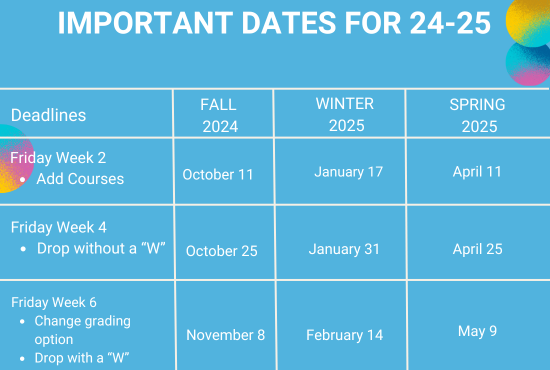Chemistry & Biochemistry Undergraduate Advising
OSD Procedures
Students with a documented disability may be eligible for testing accommodations. The Office for Students with Disabilities (OSD) is responsible for determining reasonable accommodation based on the individual’s current functional limitations. Only students who have been issued an Authorization for Accommodation (AFA) letter by the OSD are eligible for accommodations. Students are responsible for promptly meeting with OSD quarterly and ensuring that their AFA letters are finalized, up-to-date, and are received by the OSD liaison and their professors.
The Chemistry OSD Liaison (chemosd@ucsd.edu) will work directly with the student and instructor to facilitate exam accommodations for courses offered by the Chemistry and Biochemistry Department.
For more information visit our OSD Procedures page.

For more information visit the Enrollment and Registration Calendar.
Unable to attend our WI24 Enrollment Workshop? Please see our slides here!
